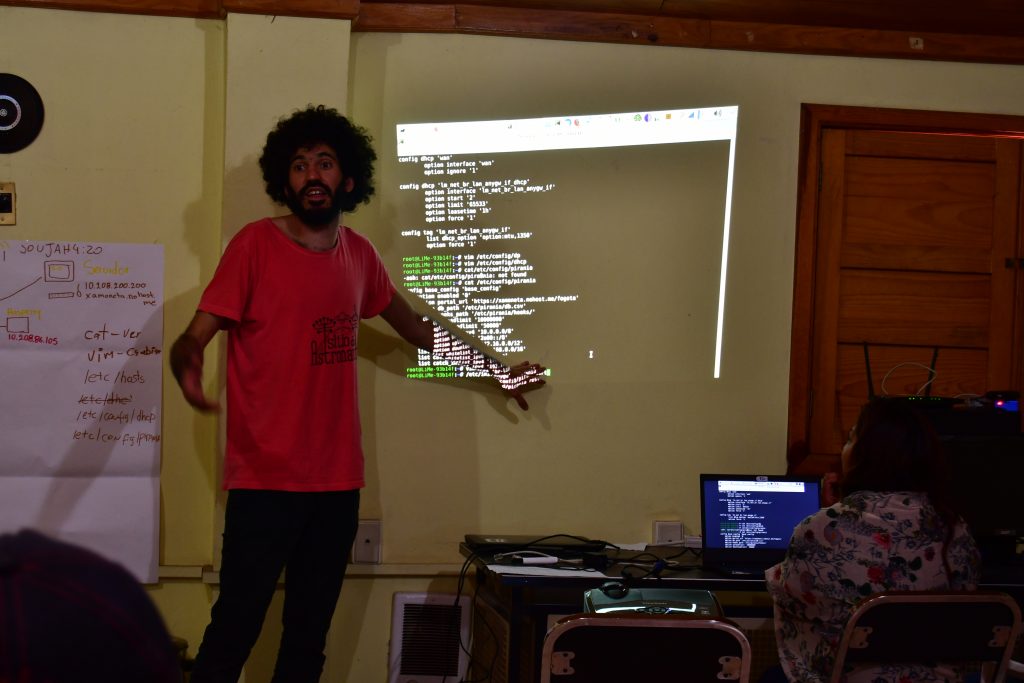Coding Dojo is a learning methodology widely used in hackerspaces to learn how to program computer code. In this dynamic, all people build the solution together, alternating the reflective position of the audience (which predominantly occupies the listening position) with the more active positions of pilot (who is doing) and copilot (who helps with suggestions). Everyone in the audience take turns between copilot and pilot successively. Thus, the mission is being built from the accumulated work of previous pilots.

The dojo coding is structured from micro steps, as simple as possible each step, making it possible for anyone, regardless of technical knowledge, to follow. And whenever there is doubt, it must manifest itself and clear up the doubt so that the whole team moves forward together.
An example of micro-steps to configure a local network with yunohost in a mesh network:
Step 0 – design the network and the devices that are connected to it
Step 1 – Turn on the computer and connect to the mesh network
bonus – explore what tools exist on the computer to access other devices
Step 2 – find out what the ip of your device is
Step 3 – discover the ip of the router and the local server(s)
Step 4 – configure a fixed ip on the server with yunohost in /etc/networks/interfaces
Step 5 – access the devices with the different tools found
Step 6 – register the local server in /etc/hosts
Step 7 – register the server in /etc/config/dhcp
Step 8 – configure pyranny redirection in /etc/config/pirania and reset in /etc/init.d/pirania restart
It is interesting, from a technical point of view, to configure the local server in a mesh network in a more resilient way. We often add the address of a server in /etc/hosts with a fixed server ip and the name we want it to have on the network. Sometimes happens that the router offers the server’s ip to another client, and this can cause a big ip conflict problem. We managed to find a solution! We added a line in /etc/config/dhcp.
With yunohost we can use different apps, like Nextcloud (for file sharing), WordPress (a blog to share your stories) and even a little game called Hextris, and much more.
